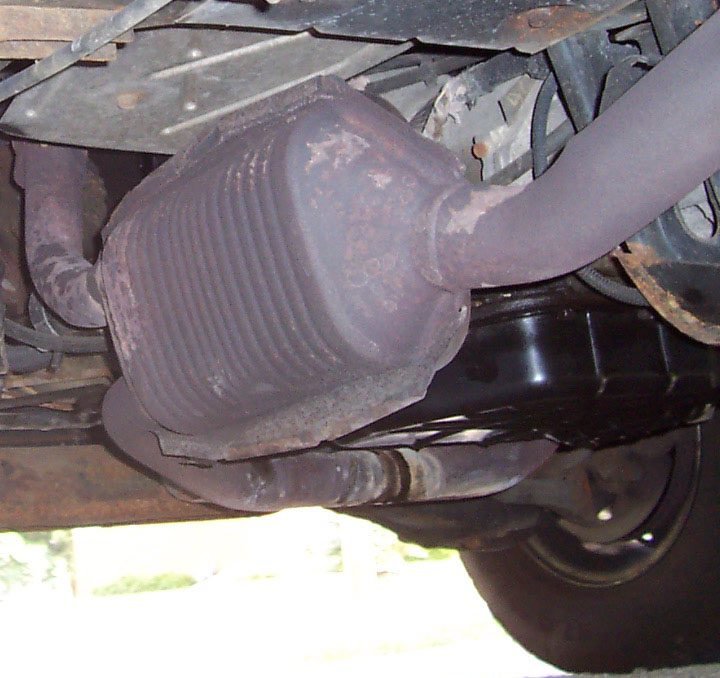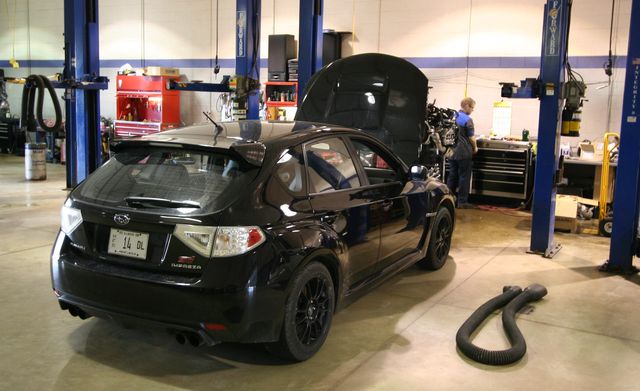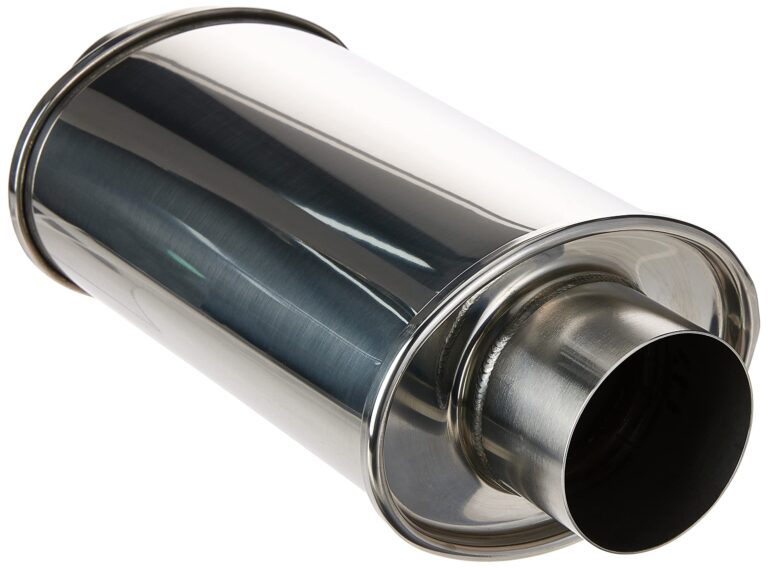Car Engine Roars: Louder Than Normal When Accelerating!
Your car engine may be louder than normal during acceleration, which could indicate a potential issue. It’s essential to address this problem promptly to prevent further damage and ensure a smoothly functioning vehicle.
Causes Of Increased Engine Roar
If you notice that your car engine is louder than normal when accelerating, it could be due to a few different causes. One possible culprit is a faulty exhaust system. A damaged or rusted exhaust pipe, muffler, or catalytic converter can all contribute to an increase in engine noise. Another potential cause is an engine misfire, which occurs when the air-fuel mixture in one or more cylinders fails to ignite properly. This can result in a loud and uneven engine roar. Air intake issues, such as a clogged air filter or a malfunctioning throttle body, can also cause increased engine noise. Additionally, damaged belts or pulleys can create a loud rattling or squealing sound when the engine is running. Finally, dirty or clogged fuel injectors may cause the engine to run rough and produce a louder noise. If you notice any of these signs, it’s important to have your car inspected by a qualified mechanic to diagnose and resolve the issue.
Symptoms Of A Louder Engine Roar
One of the common issues with car engines is when they become louder than normal during acceleration. This abnormal noise can be a sign of underlying problems that should be addressed promptly. Symptoms of a louder engine roar may include:
| Abnormal Noise Levels: | A louder engine roar than usual, especially during acceleration, may indicate issues such as a failing exhaust system, damaged muffler, or exhaust leak. |
| Decreased Engine Performance: | If the engine noise is accompanied by a decrease in performance, such as a lack of power or slower acceleration, it could be a sign of engine trouble. |
| Vibrations or Shaking: | Excessive engine noise may be accompanied by vibrations or shaking felt through the steering wheel, pedals, or the entire vehicle. This could indicate worn-out engine components or engine mounting issues. |
| Strong Odors or Smoke: | Unusual smells or smoke coming from the engine compartment when the engine is louder than normal could indicate a leak, overheating, or oil burning, all of which require immediate attention. |
If you notice any of these symptoms, it is recommended to have your vehicle inspected by a qualified mechanic to diagnose and resolve the issue causing the louder engine noise. Addressing the problem early can prevent further damage and potential breakdowns in the future.
Check The Exhaust System
When your car engine is louder than normal when accelerating, one of the first areas to check is the exhaust system. This system plays a crucial role in reducing noise and directing exhaust gases away from the engine. Start by inspecting the system for any leaks or damage. These issues can cause excessive noise and also impact engine performance. If you find any faulty parts or gaskets, it’s important to replace them as soon as possible. Additionally, ensure that all components are properly installed and securely connected. Loose connections or improper installations can contribute to increased engine noise. Finally, consider upgrading your exhaust system if you’re looking to further reduce noise or enhance engine performance. Upgraded systems are designed to improve exhaust flow and can often help reduce noise levels. Take care of your exhaust system to enjoy a quieter and smoother ride.
Diagnose And Address Engine Misfire
Car Engine Louder Than Normal When Accelerating
Use Diagnostic Tools
A loud car engine sound during acceleration can indicate an engine misfire. To diagnose and address this issue, you can start by using diagnostic tools to identify the specific cylinder causing the misfire. These tools can provide valuable information about the performance of each cylinder, allowing you to pinpoint the problem area.
Once you have identified the cylinder misfire, replace any faulty ignition components such as spark plugs, ignition coils, or spark plug wires. Faulty ignition components can disrupt the combustion process, leading to a misfire and a louder engine noise. Regularly cleaning the fuel injectors is also important, as clogged injectors can affect fuel distribution and combustion.
Additionally, performing a thorough engine tune-up, including checking and adjusting ignition timing, can help address any potential issues contributing to the misfire. By taking these steps, you can diagnose and address the engine misfire responsible for the louder-than-normal engine sound during acceleration.
Address Air Intake Issues
The sudden increase in car engine noise when accelerating may indicate underlying air intake issues. To address this problem, it is essential to check for obstructions or clogs in the air intake system. These obstructions may restrict the flow of air into the engine, resulting in increased noise levels. Another common cause of noisy engines is dirty air filters. Regularly replacing the air filters helps maintain optimal engine performance and reduces excessive noise. Additionally, the mass airflow sensor plays a crucial role in regulating air intake. Cleaning this sensor can improve engine performance and minimize noise. Lastly, inspecting the intake manifold for leaks is important as any air leaks can disrupt the airflow, leading to a louder engine sound. Identifying and fixing these air intake issues can restore the normal sound of the engine during acceleration.
Evaluate Belts And Pulleys
When your car engine becomes louder than normal when accelerating, one possible cause could be related to the belts and pulleys. To assess this, start by looking for signs of damage or wear on the belts. Inspect them thoroughly for cracks, fraying, or glazing. If any belts appear loose, it’s crucial to tighten or replace them. Loose belts can cause a squeaking or squealing noise and affect the performance of your engine.
Another area to focus on is the pulleys. Ensure that they are properly lubricated to reduce friction and noise. Use the appropriate lubricant recommended by the manufacturer to avoid any potential damages. Additionally, check the tensioner and idler pulley to ensure they are functioning correctly. These pulleys play a crucial role in maintaining tension on the belts.
| Steps to Evaluate Belts and Pulleys: | |
|---|---|
| 1. | Inspect belts for signs of damage or wear. |
| 2. | Tighten or replace loose belts. |
| 3. | Lubricate pulleys to reduce friction. |
| 4. | Check the tensioner and idler pulley for proper functioning. |
Clean Or Replace Fuel Injectors
If you notice that your car engine is louder than normal when accelerating, one possible cause could be dirty or clogged fuel injectors. Fuel injectors play a crucial role in delivering fuel to the engine for combustion. Over time, they can accumulate deposits and become less efficient, resulting in a louder engine noise.
To address this issue, you have a few options. First, you can use a fuel injector cleaner. These cleaners are designed to break down the deposits and improve the performance of the injectors. You simply add the cleaner to your fuel tank according to the instructions on the packaging.
If using a cleaner doesn’t solve the problem, you may need to perform a manual cleaning. This involves removing the injectors from the engine and physically cleaning them. It can be a more involved process, so it’s recommended for experienced DIYers or professionals.
In some cases, the injectors may be beyond repair and need to be replaced. This is typically a last resort option if the injectors are severely damaged or clogged. Consider seeking professional help for this task to ensure it’s done correctly.
Preventive Measures
A car engine that is louder than normal when accelerating can be a sign of potential issues. To prevent such problems, regular maintenance and tune-ups are essential.
One of the preventive measures is to use high-quality fuel and oil. This ensures that the engine runs smoothly and reduces the chances of unusual noises.
Keeping the air filters clean is another important step. Dirty filters can obstruct airflow and put extra strain on the engine, resulting in increased noise levels.
Checking belts and hoses periodically is also crucial. Worn-out or loose belts and hoses can cause vibrations and contribute to a louder engine noise.
In addition, maintaining proper engine cooling is important. Overheating can lead to engine damage and louder noises. Regularly inspecting the coolant levels and ensuring the cooling system is functioning effectively can help prevent this issue.

Credit: www.toyotaofseattle.com
Frequently Asked Questions Of Car Engine Louder Than Normal When Accelerating
Why Is My Engine Suddenly Loud When Accelerating?
The sudden increase in engine noise when accelerating could be due to a problem with the exhaust system or a faulty air intake. Have your vehicle checked by a mechanic to diagnose and fix the issue promptly.
Why Does My Car Engine Sound Louder Than Normal?
A louder car engine can indicate various issues, such as a damaged exhaust system or worn-out muffler. It might also signal a problem with the engine itself, like a faulty belt or a leaking exhaust manifold. Schedule a check-up with a mechanic to diagnose and fix the problem.
Why Does My Car Sound Like A Motorcycle When I Accelerate?
Your car may sound like a motorcycle when accelerating due to a possible issue with the exhaust system or a leak. It is recommended to get your car checked by a professional mechanic to determine the exact cause and necessary repairs.
Why Does My Car Sound Like A Lawn Mower When I Accelerate?
The car may sound like a lawn mower when accelerating due to a faulty exhaust system or muffler. The sound is caused by the engine’s exhaust gases escaping through a hole or leak in these components. It is important to have these issues inspected and repaired by a professional mechanic.
Conclusion
When your car’s engine is louder than normal, it’s essential to address the issue promptly to avoid potential damage. By understanding the various reasons why your engine might be making excessive noise when accelerating, you can take the necessary steps to resolve the problem.
Whether it’s a simple fix like a worn-out belt or a more complex issue like a faulty exhaust system, consulting a professional mechanic will help you diagnose and repair the problem effectively. Remember, regular maintenance and timely repairs are integral to keeping your vehicle running smoothly and silently.







